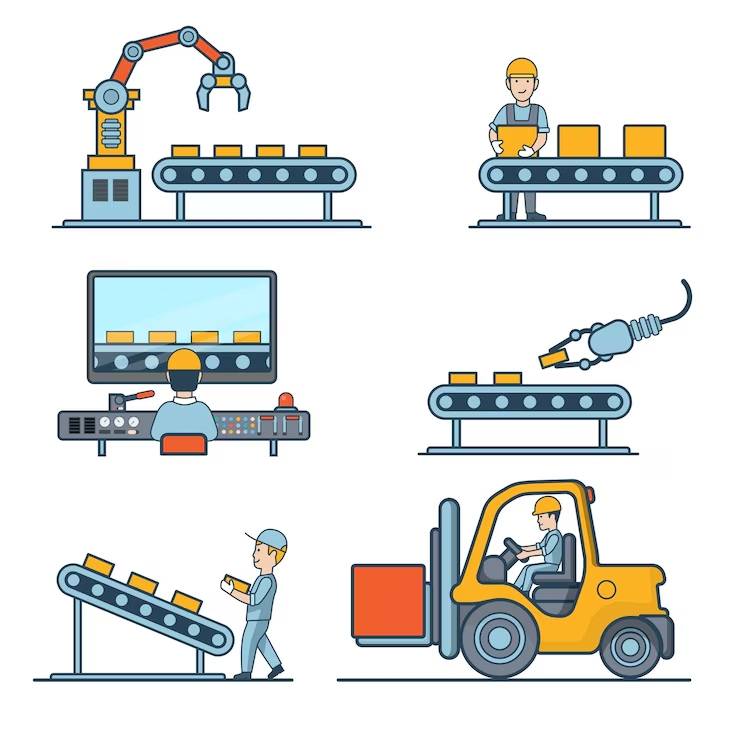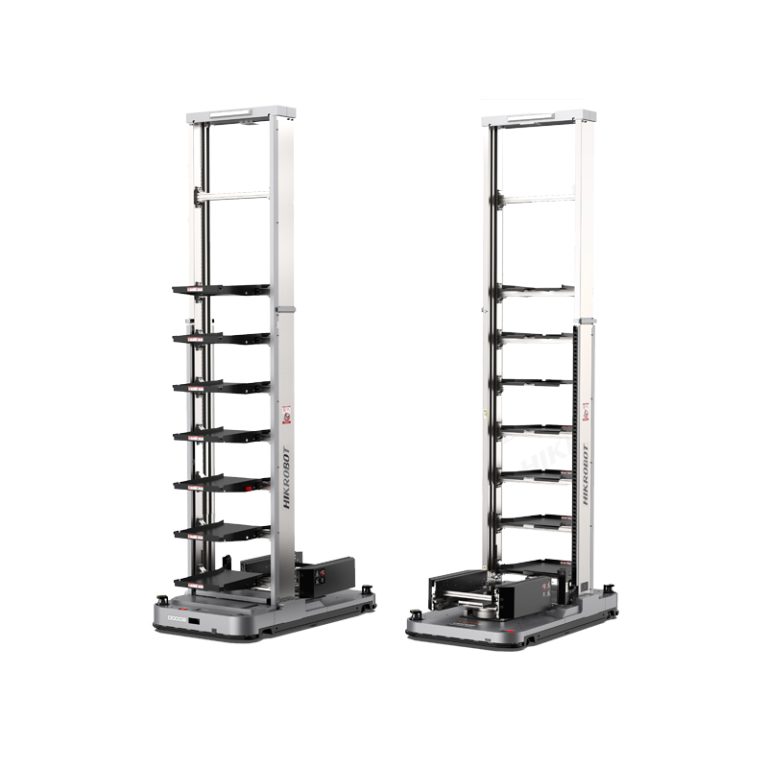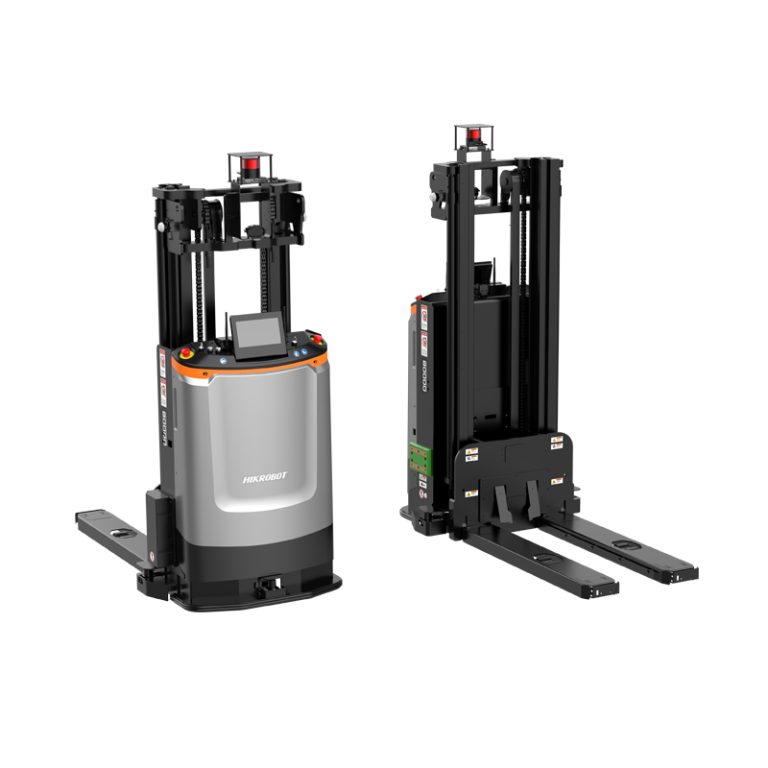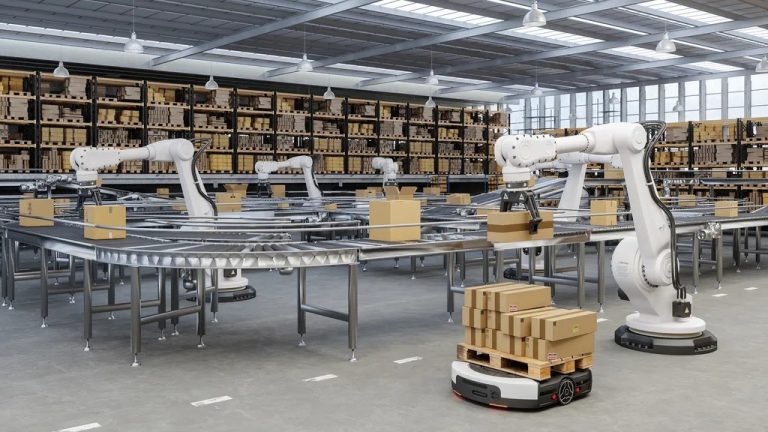![]()
Automated Guided Vehicles (AGVs) are changing warehouse tasks, providing affordable ways to boost productivity. Grasping the Total Cost of Ownership (TCO) of AGVs shows unexpected savings over time. This blog dives into what affects AGV TCO, how they cut expenses, extra perks, and why WESAR is a dependable AGV provider.
What Factors Contribute to the Total Cost of Ownership of an AGV?
The TCO of an AGV goes beyond the buying price. It covers various elements that shape the overall expense throughout the machine’s life.
Initial Purchase Price and Installation Costs
The starting cost of AGVs depends on their type and features. For instance, a Forklift Mobile Robot (FMR) might be pricier than a simple Latent Mobile Robot (LMR) because of its advanced functions. Setup costs arise too. Warehouses may need changes for navigation. Software must link with management systems. Workers need training to use and care for the machines. Though these costs seem large at first, picking a trustworthy supplier like WESAR ensures quality. This reduces setup troubles.
Maintenance and Operational Expenses
AGVs need regular upkeep to work well. Checks on sensors, wheels, and batteries are necessary. Repairs fix damage or sudden breakdowns. Software updates keep systems modern. Running costs include workers for supervision and parts like spares. WESAR’s sturdy designs lower these costs. Their strong builds mean fewer fixes.
Energy Efficiency and Lifespan Considerations
AGVs are made to save energy, which helps TCO. New batteries last longer and charge quickly. Smart navigation uses less power. High-quality AGVs, like WESAR’s, can run for 8–12 years with good care.
| Aspect | Effect on TCO |
| Battery Life | Cuts replacement needs |
| Energy Use | Reduces power bills |
| Strength | Lengthens working life |
How Does an AGV Reduce Operational Costs Over Time?
AGVs save money by making work smoother and relying less on human effort.
Labor Cost Savings with Automation
Automation cuts the need for people in repetitive jobs like moving goods. Fewer workers are needed for simple tasks. Overtime costs drop since AGVs work all day without tiring. Staff can focus on bigger jobs, like planning or checking quality. A WESAR Conveyor Mobile Robot (CMR) handles steady material movement. It saves hours of human work each day.
Increased Productivity and Efficiency Gains
AGVs improve work speed and output. They move items fast and reliably. Linking with management systems ensures accurate task assignment. Facilities handle more orders without adding workers. WESAR AGVs can boost output by up to 30%, according to client reports.
Minimizing Downtime and Error Reduction
Mistakes and delays cost money. AGVs help avoid these. Sensors stop crashes and wrong placements. Software spots problems early, preventing breakdowns. AGVs work steadily, unlike humans who tire. WESAR’s machines have real-time checks. These cut delays by up to 20%.
Are There Hidden Benefits of Investing in AGVs?
AGVs offer more than just savings. They bring smart advantages to warehouse work.
Enhanced Safety in the Workplace
AGVs make workplaces safer and reduce accidents. Sensors spot obstacles, avoiding injuries. Less heavy lifting helps workers avoid strain. AGVs meet strict safety rules. WESAR’s Autonomous Mobile Robots (AMRs) have top safety features. They keep the environment secure.
Scalability and Flexibility for Future Growth
AGVs adapt to business changes. You can add more units as needs grow. Software lets you change routes or tasks easily. AGVs handle many jobs, from picking to heavy transport. This flexibility suits companies planning to expand.
Improved Inventory Management
AGVs make stock tracking better. They connect with systems for live updates. Accurate handling cuts errors in stock counts. AGVs use space well, saving room. These perks lead to happier customers and lower storage costs.
Introducing WESAR: A Reliable AGV Supplier
WESAR Intelligence Co., Ltd., located in Suzhou, China, is a top name in smart logistics solutions. They focus on eco-friendly robots and factory systems. WESAR offers tailored automation tools. Their products, like AGVs, management software, and storage systems, come with expert advice, software creation, and support after purchase. WESAR’s role in global events like ProMat 2025 and Kansai Logistics 2024 shows their industry strength.
Why is WESAR a Trusted Name in the AGV Industry?
WESAR earns trust through its focus on quality and customer care.
WESAR’s Commitment to Quality and Innovation
WESAR puts effort into research to create advanced AGVs. They use smart navigation and internet-connected systems. Their machines are built tough for long use. Eco-friendly designs save energy and help the planet. This focus keeps clients ahead in automation.
Comprehensive Support Services Offered by WESAR
WESAR offers full support. They provide advice and planning for custom needs. Setup and training happen smoothly, with little disruption. Support is available anytime, with spare parts ready. This complete care ensures clients succeed over time.
Proven Track Record of Successful Implementations
WESAR has helped many businesses worldwide. Japanese firms saw 25% better efficiency with WESAR AGVs. Clients praise their reliability and help. WESAR’s work shines at major logistics shows. Their success makes them a top pick for AGV solutions.

Conclusion: The Long-Term Value of Investing in AGVs
AGVs bring strong returns by cutting work costs, improving safety, and offering flexibility. The starting TCO may feel big, but the lasting savings and extra perks make AGVs a wise choice. Teaming up with a reliable provider like WESAR guarantees quality, support, and new ideas. This maximizes your investment’s worth.
FAQs About AGV Total Cost of Ownership
What is the average lifespan of an AGV?
An AGV typically lasts 8–12 years. This depends on use, care, and quality. WESAR’s machines, made with strong parts, often last longer with good upkeep.
How often do AGVs require maintenance?
AGVs need checks every 3–6 months. This includes inspections and small fixes. WESAR’s smart tools can stretch this time by catching issues early.
Can AGVs integrate with existing systems seamlessly?
Yes, AGVs work well with current management and planning systems. WESAR’s customized automation solutions ensure smooth connections. Their expert help makes setup easy.








